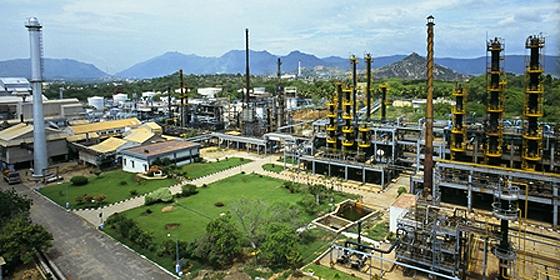In a bid to turn around its business in Egypt where it has invested $1.2 billion in eight years, Chemplast Sanmar will infuse an additional $300 million in the country, a top company executive said.
Backed by billionaire Prem Watsa, who invested $300 million in the Chennai-based polyvinyl chloride (PVC) manufacturer in 2016, the firm is betting on improving economic and political conditions in Egypt, mired in years of political upheaval following the Arab Spring.
“We are investing $300 million in doubling our PVC capacity (in Egypt to 400,000 tons). One particular approval to build a pipeline did not come through and as a result our alternative approach was to make entire finished product there to cut our dependency on the pipeline,” Vijay Sankar, deputy chairman, Sanmar Group, said in an interview in Chennai.
Egypt’s economy is expected to grow 4% in the year ending 30 June, according to a Reuters poll of 11 economists. The poll estimates economic growth will slow to 3.3% in 2017-18, and will accelerate to 4% in the following year.
Fortunately for Sanmar, whose business in the North African country has been in distress following the geo-political events surrounding the Tahrir Square revolution, the PVC market globally has started to look up. The market for PVC contracted in China for the first time during the year ended 31 March 2017 and in Europe the market has consolidated significantly, reducing the number of firms to five.
What’s more, the Indian market is also looking up, Vijay Sankar said.
“So, where we are located, which is India and Egypt, are the only places where PVC is fast growing and are deficit markets, meaning it has to be imported.”
Egypt has not been a happy story for Vijay Sankar ever since he took over the reins of chemicals company from his father N. Sankar in 2007-08.
In 2007, it acquired a small caustic soda making business in Egypt. “The idea was to expand VCM (vinyl chloride monomer) and PVC and bring VCM, which is a raw material for PVC, to India so that it becomes a fully integrated business,” Vijay Sankar explained.
Egypt then was coming off 30 years of stable regime. Taxation was more progressive than in India and with project finance available, cost of production was low. Then all hell broke loose.
Financial markets collapsed after the global financial crisis in 2008, delaying Chemplast’s plans to refinance the project.
“We had to change the mode of refinancing twice. Then the Egypt revolution hit—the Tahrir Square revolution and Egypt had seven governments after that,” he said.
“One particular approval in Egypt (for a pipeline) did not come through so we had to reconfigure our plant totally. All that could go wrong went wrong,” Vijay Sankar said.
“We were looking for investors for 4-5 years. Unfortunately, because of the location, nobody was willing to commit resources,” he said.
Complex Securities and Exchange Board of India (Sebi) regulations in those days meant Chemplast Sanmar had to delist from exchanges to bring new investors.
“It gives us flexibility to attract somebody like Mr Watsa on board,” he said.
A large part of Chemplast business is commoditized, which by nature, fluctuates and markets do not necessarily favor such businesses.
Livemint
7 May





































































